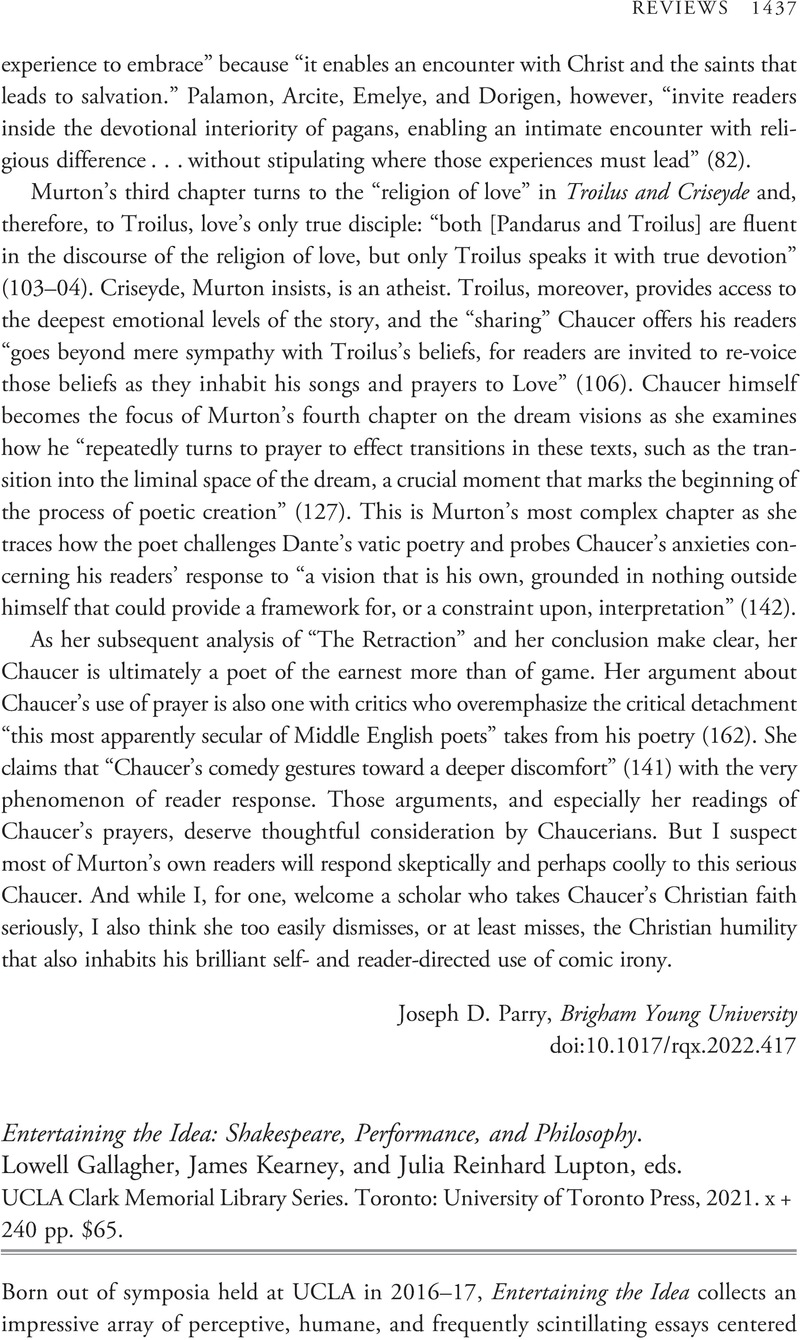No CrossRef data available.
Article contents
Entertaining the Idea: Shakespeare, Performance, and Philosophy. Lowell Gallagher, James Kearney, and Julia Reinhard Lupton, eds. UCLA Clark Memorial Library Series. Toronto: University of Toronto Press, 2021. x + 240 pp. $65.
Review products
Entertaining the Idea: Shakespeare, Performance, and Philosophy. Lowell Gallagher, James Kearney, and Julia Reinhard Lupton, eds. UCLA Clark Memorial Library Series. Toronto: University of Toronto Press, 2021. x + 240 pp. $65.
Published online by Cambridge University Press: 09 January 2023
Abstract
An abstract is not available for this content so a preview has been provided. Please use the Get access link above for information on how to access this content.

- Type
- Review
- Information
- Copyright
- Copyright © The Author(s), 2022. Published by the Renaissance Society of America



